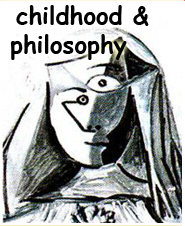los niños y una agencia desarrollada
Palabras clave:
Autonomy, Agency, Rights, ResponsibilityResumen
Que tratamos a los niños de manera diferente de los adultos está claro. La actitud de un aumento de las normas paternalistas se puede ver en una serie de casos - ya sean los derechos que los niños tienen en términos de asistencia médica, las decisiones acerca de sus vidas que se dejan a los padres o tutores, o la prohibición de determinadas actividades antes de una determinada edad. Sin embargo, sólo podemos tratar a los ‘niños como niños’ si podemos probar que esto tiene una diferencia significativa del adulto. Ya sea que se pueda demostrar que los niños son significativamente únicos (y, ciertamente, que lo son en relación con los adultos) de tal manera que sobre esa base se justifica un tratamiento diferente o, si no se puede probar que los niños son diferentes de los adultos o si no se puede decir quién es y quién no es un niño, entonces la segunda conclusión debe ser que no podemos justificar que los niños reciban un trato paternalista, y debemos, o bien rechazar la intervención paternalista del todo, o bien buscar un nuevo criterio sobre el que basar la aplicación de estas normas paternalistas agregadas. En el curso de este trabajo se examinará la naturaleza de la infancia, y también su valor en materia de adscribir derechos y responsabilidad en asuntos relacionados con los jóvenes. En lugar de la edad y la infancia ser utilizadas como indicadores de capacidad y responsabilidad, se argumentará que una marca de la agencia de un individuo debe ser tomada y que esta debería ser sostenida, independientemente de la edad del individuo en cuestión. Más aún, se sugerirá que esta agencia es específico en tareas. Este punto de vista conduce a ofrecer (tentativamente) más derechos a los niños que son agentes desarrollados. Sin embargo, está claro que la noción de agencia desarrollada no sólo tiene connotaciones para los derechos de los niños sino que también debe haber correspondientes responsabilidades que conlleva ser un agente desarrollado.Descargas
Los datos de descargas todavía no están disponibles.
Descargas
Publicado
2014-02-10
Cómo citar
DIVERS, Andrew. los niños y una agencia desarrollada. childhood & philosophy, Rio de Janeiro, v. 9, n. 18, p. 225–244, 2014. Disponível em: https://www.e-publicacoes.uerj.br/childhood/article/view/20656. Acesso em: 13 jul. 2025.
Número
Sección
artículos
Licencia
el copyright de cada artículo pertenece a cada autor. childhood & philosophy tiene el derecho a la primera publicación. el permiso de reimprimir cualquier artículo que haya aparecido en la revista necesita de la autorización escrita del autor. en adisión a cualquier forma de reconocimiento requerido por el autor el siguiente aviso debe ser añadido a la declaración de permiso en la reimpresión (con los números apropiados a los puntos suspensivos): [título del artículo] fue publicado originalmente en la infancia y la filosofía, tomo ..., número ..., pp. ...-...




